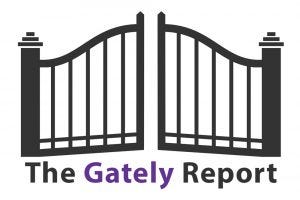Trellix needs its partners now more than ever.

Three months after its launch, Trellix, which combined McAfee Enterprise and FireEye, has resonated with partners, and a new, combined partner program will be coming later this year.
 That’s according to Kristi Houssiere, Trellix’s senior director of global channel strategy and operations. Channel Futures spoke to her at last week’s Channel Partners Conference & Expo.
That’s according to Kristi Houssiere, Trellix’s senior director of global channel strategy and operations. Channel Futures spoke to her at last week’s Channel Partners Conference & Expo.
In January, McAfee Enterprise and FireEye emerged as a new company under the name Trellix. The company focuses on extended detection and response (XDR).
Trellix stems from the previously announced merger of McAfee Enterprise and FireEye in October. STG acquired both companies last year.

Trellix’s Kristi Houssiere
Houssiere also participated in our cybersecurity roundtable at CP Expo; we’ll have more coverage from that in the coming weeks.
Eric Parizo, principal analyst of Omdia’s cybersecurity operations intelligence service, said Trellix instantly became a $2 billion cybersecurity industry titan, with products that span the network, endpoint, cloud, security operations, data security and other areas.
Since Trellix’s launch, “business has been fantastic,” Houssiere said.
“We had a great Q1 post launch,” she said. “October and January were really exciting for the company and it resonated with our partners as well because they saw where we were taking this. They saw two formidable companies, McAfee and FireEye, coming together and they saw the vision of what we are trying to do.”
Trellix is helping its partners innovate, grow and become more resilient with the company’s overall portfolio,” Houssiere said.
“And actually at launch, we talked a little bit about … two companies coming together with relatively very complementary product portfolios, which really excites our partners,” she said. “The other thing that excites our partners is we’re not competing with them. We need our partners more than ever before to drive their services, their value add around our products. So our partners are really excited about what we’re bringing out.”
Scroll through out slideshow above for more from Houssiere and more cybersecurity news from CP Expo.
Want to contact the author directly about this story? Have ideas for a follow-up article? Email Edward Gately or connect with him on LinkedIn. |
Read more about:
MSPsAbout the Author(s)
You May Also Like


